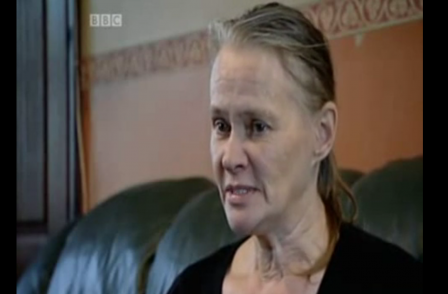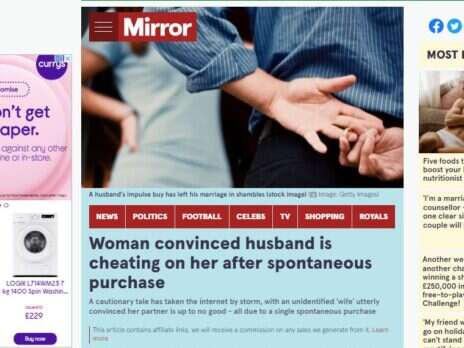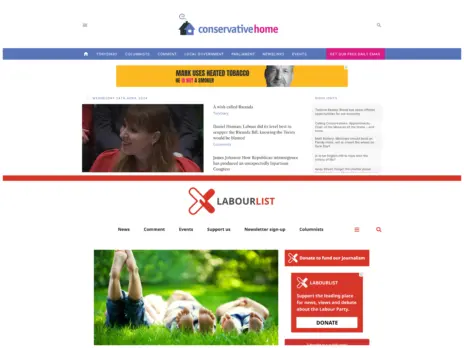
The BBC’s standard contributor forms assure sources that they will not “stand alone” if they are sued for libel over comments made to reporters.
But that is exactly what happened to Karin Ward, the first source who had the courage to go on the record with testimony that she was sexually abused by Jimmy Savile.
It is thanks to Ward that we now know that Savile was a serial sex attacker who struck at hospitals all over the country and also committed his crimes on BBC premises.
Newsnight had this story ready to go in December 2011 but it was spiked by BBC management and instead the corporation broadcast two Christmas tributes to the late DJ.
Ward must have assumed that the BBC did not believe her.
But this initial betrayal was nothing compared with what was to come.
Parts of her initial Newsnight interview were finally broadcast by Panorama in October 2012 and she also spoke to ITV documentary maker Mark Williams-Thomas.
These broadcasts prompted comedian Freddie Starr to sue Ward personally for slander and libel over claims he groped her in a BBC dressing room in March 1974.
We can only speculate about why Starr sued Ward, rather than the broadcasting giants who would have been in position to pay his costs and potentially huge damages if he won.
Ward was an abuse victim recovering from cancer who was not wealthy, so Starr might have expected his legal threats to secure a quick win.
If the BBC or ITV/ITN had stood by her from the start the case might not have gone anywhere.
As it was, Ward was able to defend the action thanks to David Price Solicitors who took the case on a no-win-no-fee basis.
She repeatedly asked the BBC, ITV and ITN to stand by her and share the cost of defending the case. They all refused.
The BBC offered an £85,000 contribution to costs three days before the case was going to trial – only after Ward’s solicitor’s wrote to director general Tony Hall personally.
But by then it was too late to make any difference.
Here are those BBC contributor assurances in full:
You agree that your contributions will not bring the BBC into disrepute or be defamatory but you will not be liable in respect of defamatory material which is included without negligence or malice on your part.
This provision should reassure contributors that, if they are inadvertently defamatory, the BBC will not expect them to stand alone. Except where they may have been negligent or malicious, the BBC would normally indemnify them should legal proceedings follow.
There was never any suggestion that Ward was negligent or malicious.
On 2 October 2012, Ward gave an interview to ITV journalist Mark Williams-Thomas on the eve of the broadcast of his widely trailed documentary “Exposure” which finally aired the Savile sex abuse allegations.
She said to him: "I was horribly, horribly humiliated by Freddie Starr who had a very bad attack of wandering hands and had groped me and I didn’t like him because he smelled like my step-father and it frightened me and freaked me out and I rebuffed him and he humiliated me in front of everyone in the dressing room.”
The first broadcast of these words which Starr sued over was by Channel 4 News (produced by ITN) on 8 October 2012. Her comments about Starr were then broadcast by ITV show This Morning on 10 October.
They were also broadcast by ITV News (also an ITN production) on 1 November following Starr’s arrest by police (no charges were brought).
On 22 October the BBC finally broadcast its original interview with Ward on Panorama, which did not identify Starr.
She said:"That’s when the other guests on the show would come in, generally after the show had finished they would come in and they clearly saw girls and, well, kids, male and female, as being there to be used. I had a famous person who would try, he smelled awful, he smelled of sweat and alcohol and it made me heave just to be near him, so I certainly didn’t want him to do anything to me.”
But Panorama showed footage of Starr immediately before broadcasting these words leaving the viewer little doubt about who Ward was referring to.
This was despite the fact that BBC journalists had initially promised her Starr would not be identified.
So ITN (which produced Channel 4 News) and ITV clearly believed Ward, otherwise they would not have broadcast comments which were obviously defamatory if not true.
They should have stood by her. By not doing so they send out the message that litigants can shut up sources by suing them personally, and they discourage those sources from coming forward in the first place.
The BBC appears to have connected Starr to Ward through an editing error on a programme which was put together at speed in response to a fast-moving story.
Arguably that makes it all the more incumbent on the corporation to stand by its source.
If Ward had lost her case she would have been bankrupted. As it was she had the huge pressure, worry and at least some expense of dealing with this case on her own.
Again, would a source go to the BBC in similar circumstances in the light of the way Ward was treated?
When Press Gazette put this story to the BBC press office on Friday, the response appeared to be to suggest I was barking up the wrong tree. They denied abandoning Ward and said the BBC had offered to make a fair contribution to her costs.
They did not mention that this happened at the 11th hour when it was too late to make any difference. When I said Press Gazette would be doing a story anyway, they at least had the courtesy to provide a statement.
We note that Mr Starr himself brought the allegations into the public domain and sued Ms Ward over various publications including several reports by ITV naming Mr Starr and online material by Ms Ward which were made before BBC Panorama in October 2012.
As a contributor to BBC output, the BBC offered to help Ms Ward with a contribution to her legal costs before the trial and remains willing to discuss a fair contribution to her costs, if these cannot be recovered from Mr Starr as ordered by the court.
Both ITN and ITV have declined to even comment. Which is surprising when this is an issue which strikes at the heart of their journalistic integrity.
These were no doubt corporate decisions made by managers and lawyers rather than journalists.
And it is worth noting that BBC journalists Meirion Jones and Liz McKean and ITV's Williams-Thomas all gave Ward personal support and testified on her behalf at trial.
But those managers need to know that if vulnerable sources are thrown to the wolves their news organisations will pay a heavy price in the long-term for the money they sought to save by abandoning Karin Ward.
Email pged@pressgazette.co.uk to point out mistakes, provide story tips or send in a letter for publication on our "Letters Page" blog






